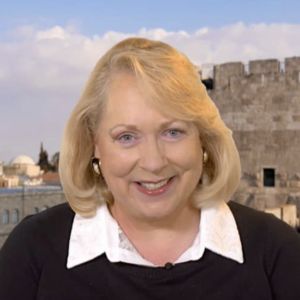The personalities of leaders often take center stage in international politics. This is evident in the current discourse surrounding U.S.-Iran relations, particularly given the likelihood of another face-off between President Joe Biden and former President Donald Trump in the upcoming presidential election.
The American relationship with Iran has been tumultuous, to say the least. Rooted in a complex history and a tangled web of geopolitical interests, it transcends partisan politics.
The history of U.S. intervention or lack thereof in Iranian affairs is a tangled web. Beginning with the 1979 Islamic-Marxist revolt, it has been marked by failure. President Jimmy Carter badly mishandled relations with the late Shah and enabled the rise of Ruhollah Khomeini’s theocratic regime. Later, President Barack Obama ignored Iran’s civilian uprising and instead embraced the regime. While more reticent than his predecessor, Biden appears to be somewhat optimistic about dialogue with the mullah’s regime.

Given this history, the Iranian-American community—which largely opposes the Islamic regime—has become disillusioned with U.S. policies irrespective of the party in power. The community sees the U.S. as disinclined to support the Iranian people’s aspirations for democracy and freedom.
At the same time, the situation in Iran is dire. As the U.S. has dithered for decades, the Islamic tyranny has only further entrenched its dominance by brutally suppressing domestic dissent and pursuing a quest for hegemony through a policy of regional terrorist imperialism.
In such a situation, it is clear that the U.S. will play a crucial role in shaping the future of Iran. The Trump administration signaled what this role might be by assassinating Iran’s Islamic Revolutionary Guard Corps commander Qassem Soleimani, the architect of Iran’s Middle East terror network and imperialist strategy. Soleimani’s assassination resonated profoundly within Iran and earned Trump an undeniable reputation among many Iranians.
The Biden administration faces and a potential second Trump administration would face critical questions about the future direction of U.S.-Iran relations.
The dilemma facing the U.S. is complex. Iran’s continuing destabilization of the region must be addressed. At the same time, the Iranian opposition must be reevaluated, because despite the State Department’s and the CIA’s lack of faith in the movement, the opposition will play a crucial role in the pursuit of a democratic Iran.

Moreover, U.S. policy towards Iran must be evaluated not just in the context of bilateral relations but also broader regional dynamics. These include Iran’s deepening ties with Russia and China and their impact on global terrorism and Israel’s security.
As the 2024 presidential election approaches, it is imperative to shift focus from the individuals vying for the Oval Office to the broader policy frameworks they propose, which will determine the future stability and prosperity of the Middle East and with it, much of the world.
The path the U.S. chooses to take will have significant implications for regional stability and global security, no matter who wins the 2024 presidential election. Thus, the most important thing is for the U.S. to adopt a strategic approach to Iran and the broader Middle East that will remain consistent no matter who is president. The cause of global peace and stability depends on it.

The 1979 catastrophe in Iran gave rise to a dangerous form of Islamic terrorism. It is now crucial for the U.S. and other nations to confront this menace and advocate for a change in Iran’s government. Much as communism and apartheid were ultimately relegated to history, it is essential to do the same to Islamic terrorism. The epicenter of this turmoil is Tehran.
Regardless of whether Trump or Biden occupies the White House, the importance of pursuing regime change should not be overlooked.
Israeli soldiers are risking their lives to protect us all from Islamic terrorism. But they need our help. Sign up for Israel365 Action to receive updates on how YOU can help fight Hamas and its supporters in the United States and around the world.





